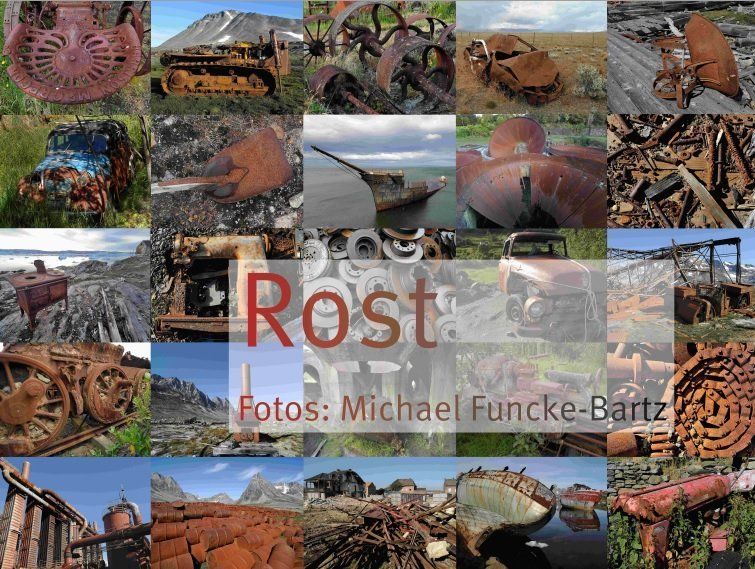Rust

Rust signals more than just "the paint is off". Often they are relics of a bygone age that stand in contrast to their surrounding nature or sometimes develop a new symbiosis or even aesthetics with it. This includes abandoned industrial equipment as well as left behind vehicles or household items. The photo exhibition sets off in different parts of the world on the trail of such places.
Date:
28.01. until 14.03.19
Location:
VHS Frechen
Similar things happened in shipping: Sailing vessels, like the one stranded off the Patagonian coast, crossed the world's oceans for a long time until they were replaced by steam ships. Steam locomotives, in turn, were replaced by diesel or electric locomotives, or became victims of line closures.
Wrack of Lord Londsdale, 1909; Punta Arenas/Chile
e closures.
Obsolete industrial plants usually have to give way quickly to new ones. It is therefore rather unusual for such relics to be preserved. After the gold rush in New Zealand was over, plants rusted away that previously contained highly poisonous cyanide to separate gold from the rock. Other places are testimonies to the war, such as the airfield at the Arctic Circle, or experienced then its boom, such as the plant for processing kieselguhr for the production of explosives in Scotland.
Victoria Gold Battery, Waikino/New Zealand
Kieselguhr processing, Loch Cuithir/Scotland
Hangar, Old Ikateq (Bluie East Two), Greenland










